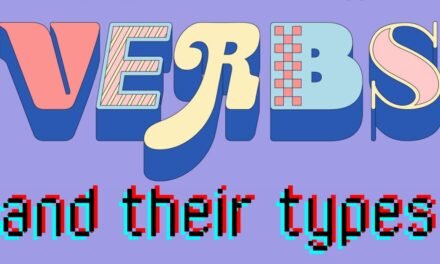Essay writing is a fundamental pillar of English language education, and stands as a testament to the power of clear communication and critical thinking. It challenges students to delve into complex topics, construct arguments, and articulate their understanding in a structured and compelling manner. Yet, for many learners, the prospect of writing an essay evokes a sense of apprehension. This comprehensive guide aims to dismantle the perceived complexities of essay writing, offering a roadmap to navigate this essential skill with confidence. Here, we will explore the core elements of an effective essay, delve into the crucial role it plays in English language development, and equip you with practical strategies to craft impactful essays that leave a lasting impression.
Have you ever stared at a blank page, dreading the looming essay assignment? Fear not, fellow wordsmiths! This guide is your one-stop shop for conquering the essay. We’ll break down everything you need to know, from understanding the different types of essays to crafting a winning thesis statement. Whether you’re struggling with organization, research, or simply feeling overwhelmed, we’ve got your back. Get ready to transform essay writing from a chore into a chance to showcase your knowledge and impress your teachers (or that pesky professor!). So, grab your pens, fire up your laptops, and let’s embark on a journey to essay writing mastery!
Essay writing: What is an Essay
An essay is a focused piece of writing that explores a particular topic. It typically follows a formal structure with an introduction, body paragraphs, and a conclusion. The purpose of an essay can vary depending on the type and assignment. The essay world is a diverse landscape, offering various approaches to explore ideas and communicate effectively. Let’s delve into the four prominent essay types, unveiling their unique purposes and characteristics:
Argumentative Essay: Championing Your Viewpoint
The argumentative essay is a battleground of ideas, where you don your intellectual armor and persuade the reader to adopt your perspective. Here’s where your critical thinking and reasoning skills come to the forefront.
- Objective: To convince your audience of the validity of your claim by presenting compelling arguments backed by solid evidence.
- Structure: A strong thesis statement forms the foundation, outlining the specific viewpoint you’re advocating for. Each body paragraph tackles one key argument, supported by facts, statistics, expert opinions, or real-world examples. Counterarguments, presenting opposing viewpoints, can be strategically addressed and refuted to strengthen your overall case.
- Example Topic: “Social media platforms should be held accountable for the spread of misinformation.”
Expository Essay: Illuminating Concepts and Processes
The expository essay transforms you into a teacher, guiding the reader through a complex concept, process, or event. Clarity and organization are paramount in this informative endeavor.
- Objective: To enlighten the reader by providing a comprehensive explanation of a chosen subject.
- Structure: The introduction piques the reader’s interest and introduces the topic. Body paragraphs delve deeper, using definitions, illustrations, comparisons, and step-by-step breakdowns to ensure understanding.
- Example Topic: “How photosynthesis fuels the cycle of life on Earth.”
Narrative Essay: Weaving a Compelling Story
The narrative essay transports the reader into a captivating story, allowing them to experience events firsthand. Here, you become a storyteller, drawing emotions and conveying a message through the power of narrative.
- Objective: To engage the reader with a personal story, historical account, or fictional narrative.
- Structure: A strong introduction sets the stage, introducing the characters, setting, and initial conflict. The body paragraphs follow a chronological sequence, depicting the events of the story with vivid details and sensory language. The conclusion provides closure, reflecting on the significance of the experience or lesson learned.
- Example Topic: “The day I overcame my stage fright and delivered a winning presentation.”
Analytical Essay: Deconstructing and Interpreting
The analytical essay invites you to become a literary detective, dissecting a subject, text, or concept to reveal its underlying meaning and significance. It’s a cerebral exercise that demands close examination and insightful interpretation.
- Objective: To provide a deep understanding of a subject by analyzing its components and exploring their meaning and interrelationships.
- Structure: The introduction presents the subject and the specific lens through which you will analyze it (e.g., symbolism, historical context, etc.). The body paragraphs delve into specific details, characters, events, or elements of the subject, exploring their significance and contributing to the overall interpretation.
- Example Topic: “The symbolism of colors in Shakespeare’s play Hamlet.”
Importance of Essay Writing in English
Essay writing is crucial in English language learning because it cultivates a multitude of valuable skills:
Critical Thinking: Essays require you to analyze information, identify relationships between ideas, and form your own conclusions. This strengthens your ability to think critically and question the world around you.
Research Skills: Depending on the essay type, you may need to conduct research, gather evidence, and evaluate sources. This enhances your research skills, empowering you to find and critically assess information.
Organization and Structure: Essays demand a well-organized structure with a clear flow of ideas. This fosters your ability to organize information logically and communicate your thoughts in a structured manner.
Argumentation and Persuasion: Argumentative essays hone your ability to construct a logical argument, using evidence and reasoning to persuade the reader. This skill translates to various aspects of life, from expressing yourself in debates to crafting a persuasive job application.
Writing Mechanics: The essay writing process reinforces good writing habits like clear sentence structure, proper grammar, and effective vocabulary usage. This contributes to overall writing proficiency and clarity.
Essential Tools and Resources
Before embarking on your essay writing journey, it’s crucial to gather the necessary tools and resources to ensure a smooth and successful process. Here’s a comprehensive list of essentials to have by your side:
Understanding the Prompt or Topic
The essay prompt or topic acts as your compass, guiding you in the right direction. Read it meticulously, underlining key terms and identifying the specific task at hand. Is it an argumentative essay where you need to convince the reader of your viewpoint? Or perhaps an expository essay where you’ll explain a complex concept? Understanding the essay type and the specific prompt will provide a clear focus for your writing.
Research Materials (For Applicable Essays)
Certain essay types, like argumentative and analytical essays, often require research to gather evidence and support your claims. Here’s where your research skills come into play. Utilize credible sources like academic journals, books by reputable authors, and trustworthy websites. Remember to evaluate the credibility of your sources before using them – a university website or a government publication will hold more weight than a personal blog.
Creating an Outline
An outline is your roadmap to a well-organized essay. It helps structure your thoughts before diving into writing. Here’s how to create a helpful outline:
- Thesis Statement: Craft a clear and concise thesis statement that summarizes your main argument or central point. This will be the guiding light for your entire essay.
- Main Points: Identify the key points you will use to support your thesis statement. Each body paragraph will typically focus on one main point.
- Supporting Evidence: Brainstorm evidence for each main point. This can include facts, statistics, quotes from experts, or real-world examples.
- Structure: Sketch out the basic structure of your essay, including the introduction, body paragraphs, and conclusion.
An outline doesn’t have to be rigid. Use it as a flexible tool to organize your thoughts and ensure a logical flow of ideas in your essay.
Dictionaries and Thesauruses
Dictionaries and thesauruses are your language powerhouses. Use them to:
- Precise Word Choice: Opt for precise and powerful words that accurately convey your meaning.
- Vocabulary Expansion: Expand your vocabulary to avoid repetitive word usage and elevate the sophistication of your writing.
- Synonym Exploration: Find synonyms for commonly used words to add variety and avoid monotony in your writing style.
Style Guides (MLA, APA, etc.)
Depending on your instructor’s requirements or the publication you’re submitting to, you might need to follow a specific style guide for formatting and citation. Popular style guides include MLA (Modern Language Association) and APA (American Psychological Association). These guides provide clear instructions on elements like:
- Formatting: Proper margins, font size, line spacing, and heading styles.
- In-Text Citations: How to acknowledge borrowed ideas or information within your essay.
- Bibliography: The format for listing the sources you consulted in your research.
Familiarizing yourself with the relevant style guide ensures a professional and polished final product. By equipping yourself with these essential tools and resources, you’ll be well-prepared to tackle any essay challenge that comes your way. Remember, these are just the building blocks – your creativity, critical thinking, and writing skills will ultimately bring your essay to life.
A Step-by-Step Guide to Essay writing
The essay writing process can seem daunting, but with a structured approach and the right tools, you can transform it into a rewarding experience. Here’s a detailed breakdown of each step involved:
Prewriting
Before diving headfirst into writing, take some time for prewriting activities to gather your thoughts and organize your ideas. Here are some key steps involved:
- Brainstorming: Unleash your creativity! Jot down everything that comes to mind about the essay topic. Consider different perspectives, potential arguments, and relevant examples. This initial brain dump helps you explore various dimensions of the topic and generate a rich pool of ideas.
- Research (if needed): Depending on the essay type, conducting research may be crucial. Gather relevant information and credible evidence to support your claims. Utilize libraries, academic databases, and reputable online sources. Remember to evaluate the credibility of your sources – a scholarly journal article will hold more weight than a personal blog.
- Thesis Statement Formulation: The thesis statement is the cornerstone of your essay, summarizing your central argument or main point. Craft a clear, concise, and specific thesis that reflects the essay prompt and outlines your stance on the topic. A strong thesis statement provides a roadmap for your essay, guiding the reader and ensuring all your arguments contribute to a unified whole.
Writing: Transforming Ideas into a Cohesive Essay
Now that you have a solid foundation, it’s time to translate your prewriting efforts into a well-structured essay. Let’s explore the essential components of a compelling essay:
Introduction: Hook your reader from the very beginning. Start with an engaging introduction that introduces the topic, provides context, and establishes the significance of your thesis statement in Essay writing. You can use a thought-provoking question, a relevant anecdote, or a historical fact to capture the reader’s attention. The introduction should smoothly transition into your thesis statement, clearly outlining the main argument you will develop throughout the essay.
Body Paragraphs: The body paragraphs are the workhorses of your essay, where you develop your arguments and present evidence to support your thesis statement. Each paragraph should focus on a single main point that contributes to your overall argument. Here’s the building block for a strong body paragraph:
- Topic Sentence: Start each paragraph with a topic sentence that introduces the main point you will be discussing. This sentence should connect back to your thesis statement and guide the reader through the specific argument of that particular paragraph.
- Evidence and Analysis: This is where you flesh out your argument. Provide concrete evidence to support your claims, which can include facts, statistics, quotes from experts, or real-world examples. Don’t just present the evidence – analyze it! Explain how the evidence strengthens your argument and connects back to your main point.
- Explanation and Transitions: Use clear and concise language to explain your points and ensure a smooth flow of ideas. Employ transition words and phrases to connect your sentences and paragraphs logically, guiding the reader through your thought process.
-
Conclusion: Conclude your essay on a strong note. Briefly summarize your main points and restate your thesis in a new way. Don’t simply repeat your introduction. Offer a final thought, implication, or call to action that leaves a lasting impression on the reader.
Revision and Proofreading: Polishing Your Work for Perfection
Once you’ve finished your first draft, don’t hit submit just yet! Take a step back and dedicate time for revision and proofreading. Here’s how to ensure your essay shines:
Self-Evaluation: Reread your essay critically, assessing the overall flow, clarity, and logic of your arguments. Does your essay flow seamlessly from point to point? Does each paragraph contribute to your thesis statement? Does your essay provide adequate evidence to support your claims? Pay close attention to sentence structure, grammar, and punctuation.
Peer Review: Seeking feedback from a classmate, friend, or tutor can be invaluable. A fresh perspective can help identify areas needing improvement or clarity. Ask your reviewer to focus on the organization of your arguments, the strength of your evidence, and the overall effectiveness of your writing style.
Proofreading: After incorporating feedback from revision and self-evaluation, meticulously proofread your essay for any typos, grammatical errors, or formatting inconsistencies. Utilize spell-checkers and grammar tools, but remember, they are not foolproof. Read your essay aloud to catch any awkward phrasing or clunky sentences.
By following these steps and dedicating time to each stage of the process, you can transform your essays from simply fulfilling an assignment to crafting impactful pieces that showcase your knowledge, analytical skills, and writing prowess. Remember, practice makes perfect! The more you write, the more comfortable and confident you will be.
Conclusion
Conquering the essay may seem like a daunting task, but with the right approach and these valuable tools at your disposal, you can transform it into a rewarding experience. Remember, effective essays are not born overnight – they require dedication, practice, and a willingness to learn and refine your writing skills. Embrace the challenge, utilize the resources outlined here, and embark on a journey of becoming a confident and impactful essay writer.








Thanks for this enlightening blog. It’s been extremely informative and provided a lot of useful information.
Magnificent items from you, man. I’ve take into accout your stuff previous to and you are just too wonderful. I really like what you’ve obtained right here, really like what you’re saying and the way during which you are saying it. You make it enjoyable and you still take care of to stay it sensible. I cant wait to learn far more from you. That is really a tremendous web site.
You are my aspiration, I own few web logs and infrequently run out from to post .
It’s hard to find knowledgeable people on this topic, but you sound like you know what you’re talking about! Thanks